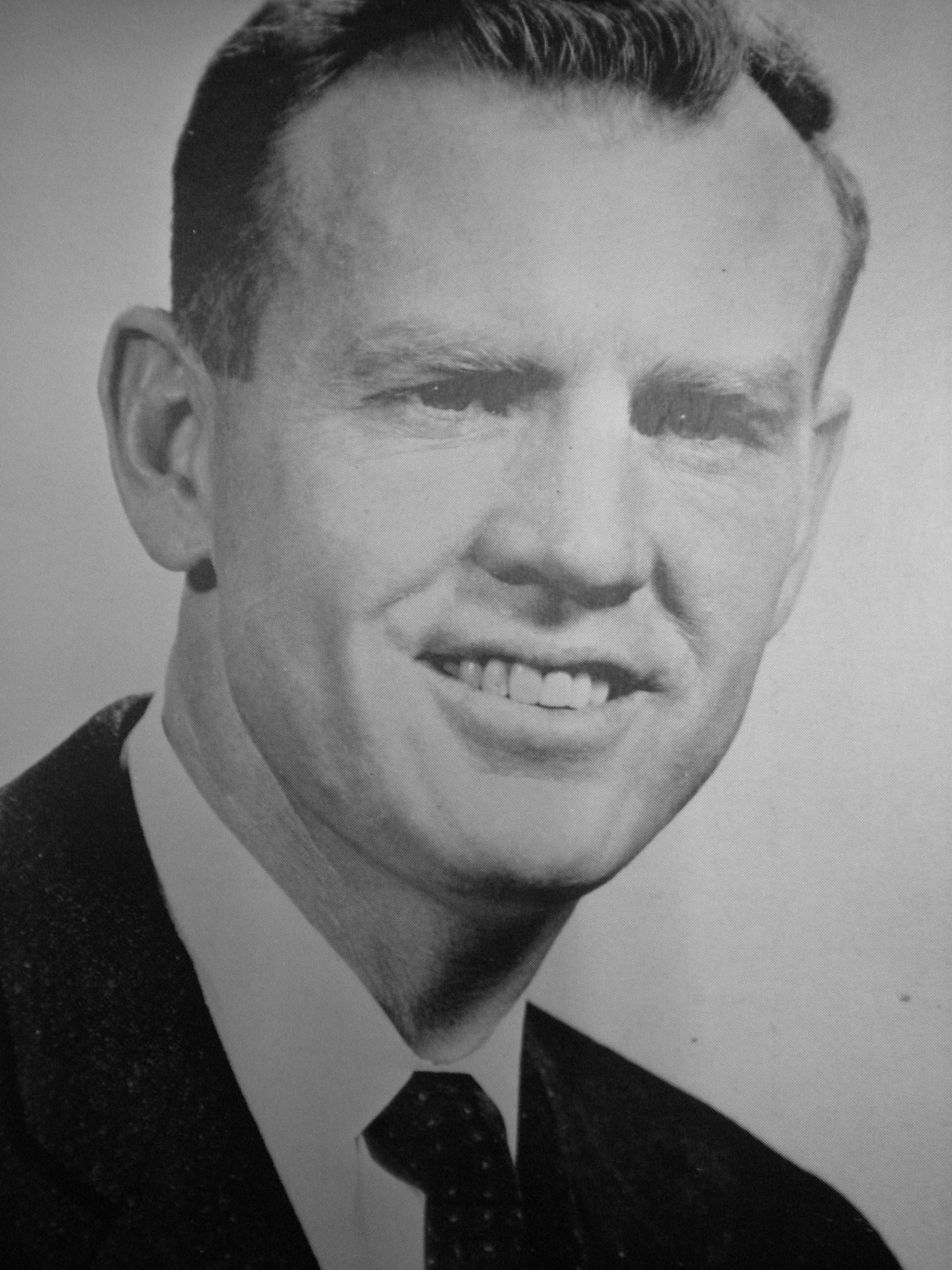- Bill Yeoman
College coach infobox
Name = Bill Yeoman

ImageWidth =
Caption =
Title =
College =
Conference =
CurrentRecord =
DateOfBirth = birth date and age|1927|12|26
Birthplace = flagicon|Indiana Elnora, IN
DateOfDeath =
Deathplace =
OverallRecord = 160-108-8
Contract =
BowlRecord = 6-4-1
TournamentRecord =
CFbDWID = 2593
Championships =
Awards =
CoachingRecords =
Player = Y
Years = 1945
1946-1948
Team = Texas A&M
Army
Position = C
Coach = Y
CoachYears = 1954-1961
1962-1986
CoachTeams = Michigan State (assistant)
Houston
FootballHOF = 2001
CollegeHOFID = 70070
BBallHOF =Bill Yeoman (born
December 26 ,1927 inElnora, Indiana ) was the head football coach at theUniversity of Houston from 1962 to 1986. During his 25-year tenure, he became the winningest coach in school history, compiling an overall record of 160-108-8. Yeoman revolutionized offensive football in 1964 by developing theVeer option offense. Yeoman also played a prominent role in the racial integration of collegiate athletics in the South by being the first coach in the State of Texas to sign a black player. Yeoman's Cougars finished the season ranked in the AP Top 10 four times and finished 10 times in the Top 20.Playing Career and Early Coaching Career
Yeoman played center for the Army Black Knights 1946-48 under legendary coach
Earl Blaik . The 1946 team was 9-0-1 with a backfield of twoHeisman Trophy winners: Glenn Davis andDoc Blanchard . He was a team captain in 1948 and chosen as a second teamAll-American . Army football compiled a 22-2-4 record during his time as a cadet-athlete. Yeoman served in theUnited States Army from 1950 to 1953. He returned to civilian life and became an assistant coach underDuffy Daugherty at Michigan State from 1954 to 1961.Head Coaching Career
After serving as an assistant coach for eight seasons at
Michigan State , Yeoman was hired to become the head coach of the University of Houston Cougars in 1962. The Cougars had only begun playing football in 1946 and had enjoyed little success or prominence in the program’s short history. Yeoman established a winning tradition in his very first year at Houston, guiding the team to a 7-4 record and a victory in the Tangerine Bowl. After a losing season in 1963, Yeoman began experimenting with a new offense he named theVeer after its split-back alignment. The Veer option offense would revolutionize college football and help the Cougars to become a perennial power.On
July 11 ,1964 , Yeoman helped to break the color barrier for majorTexas football programs when the University of Houston signedSan Antonio ’sWarren McVea to ascholarship . The recruitment of McVea was part of an overall move by the University of Houston athletic department in 1964 to integrate their athletic programs. The other prominent black athletes signed by UH that year were basketball playersElvin Hayes andDon Chaney .Running the Veer offense, Houston led the nation in
total offense for three consecutive years in the late ‘60s, averaging 437 yards a game in 1966, 427 in 1967, and 562 in 1968. The 1968 offensive total set an NCAA record. Houston also led the nation in scoring that year, tallying 42.5 points per game. This average was aided in part by the Cougars’ 100-6 victory over Tulsa that marked the last time that a team scored 100 points in a top-division college football game.In 1976, Houston’s first year as a member of the
Southwest Conference , the Cougars posted a 10-2 record that included a 30-0 win at rival Texas and a victory over Maryland in the Cotton Bowl. Yeoman was named Texas Coach of the Year and was runner-up forNational Coach of the Year honors. Yeoman guided the Cougars to four Southwest Conference Championships (1976, 1978, 1979, 1984) during his career, and he earned a 6-4-1 record in bowl games including a Cotton Bowl win over Nebraska in 1980.Yeoman’s tenure at UH was not without controversy. In 1986 allegations surfaced that illegal recruiting inducements and extra benefits had been tendered to UH football players. Yeoman was alleged to have handed out cash to players and provided them with illegal transportation and lodging. Subsequent to its investigation, the NCAA levied sanctions and placed the program on probation in 1988.
Yeoman retired from coaching in late 1986 after a 1-10 campaign. He had coached 46
All-America players and 69 future NFL players during his career. In his 25 years as the headman at UH he had taken the program from obscure upstart to regional power. In the process, his offensive innovations had helped to revolutionize college football. When Yeoman arrived on campus, UH was an independent program that had been to only one bowl game. When Yeoman retired, UH was a member and four-time champion of a major athletic conference.Post-Coaching Career
Bill Yeoman was inducted into the University of Houston Hall of Honor in 1998. He was elected to the
College Football Hall of Fame in 2001 and theTexas Sports Hall of Fame in 2003. Yeoman currently works as a fundraiser in the athletic department of the University of Houston.
Wikimedia Foundation. 2010.

